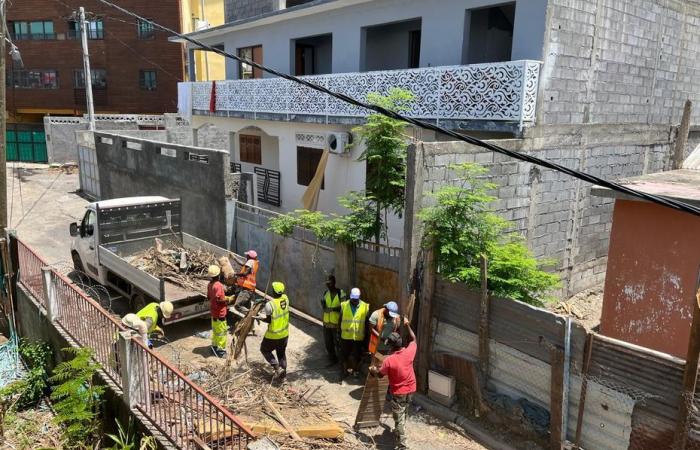Among the major challenges facing the territory in this post-cyclonic period, waste management. The municipalities, with the help of residents, are working to rid the streets of these bulky items. Example in Petite-Terre, the intercommunality works with private companies to deal with tons of waste.
Chido not only destroyed schools, homes and infrastructure, he left behind mountains of trash. Today the challenge is immense; we must rid the streets of these bulky items. In Petite-Terre, the intercommunality works hand in hand with private companies to deal with tons of waste. Ten reference agents accompany them in the field, proceeding district by district. And the waste is grouped on several sites.
We have heard from neighbors, they think it's starting to stink, we need to react quickly. (…) We first ask the residents to sort, if this is not done, the agents of the selected companies will take care of it. There is green waste, household waste, bulky items.
Mohamed Nakad responsible for rhi studies resorption of unsanitary housing
•
©Chafanti Ali Baco
•
©Chafanti Ali Baco
These cleaning operations were put in place by the intercommunity in the first days after the passage of Cyclone Chido. According to Archadi Abassi, the president of the Petite Terre intercommunality, the chosen strategy was to initially attack the 3 main axes of Pamandzi and the 3 main axes of Labattoir to allow the population to move easily. Secondly, intercommunal and municipal roads and then finally the neighborhoods. These cleaning operations will continue until the end of January.
They do not only concern Petite-Terre. A working group was created to monitor waste management across the island. It brings together the prefecture, SIDEVAM, CADEMA and DEAL.
-Once this waste has been removed from all neighborhoods and villages, it is placed in buffer zones. (…) There the immense work that remains to be done is to manage these buffer zones and there we will have to sort with the machines that we have or that we do not have. (…) This work is likely to last another six months, in Mayotte we have only one landfill site which is in Dzoumogné and we cannot throw everything in there.
Houssamaoudine Abdallah, president of SIDEVAM
SIDEVAM therefore calls on eco-organizations, they manage, for example, tires, textiles or even sheet metal. The latter are processed in the north of the island in an eco-organization which has received 220 tonnes of sheet metal per day since cyclone Chido compared to 0 before Chido.
SIDEVAM and the intercommunal authorities estimate the cost of cleaning the island at 20 million euros.



